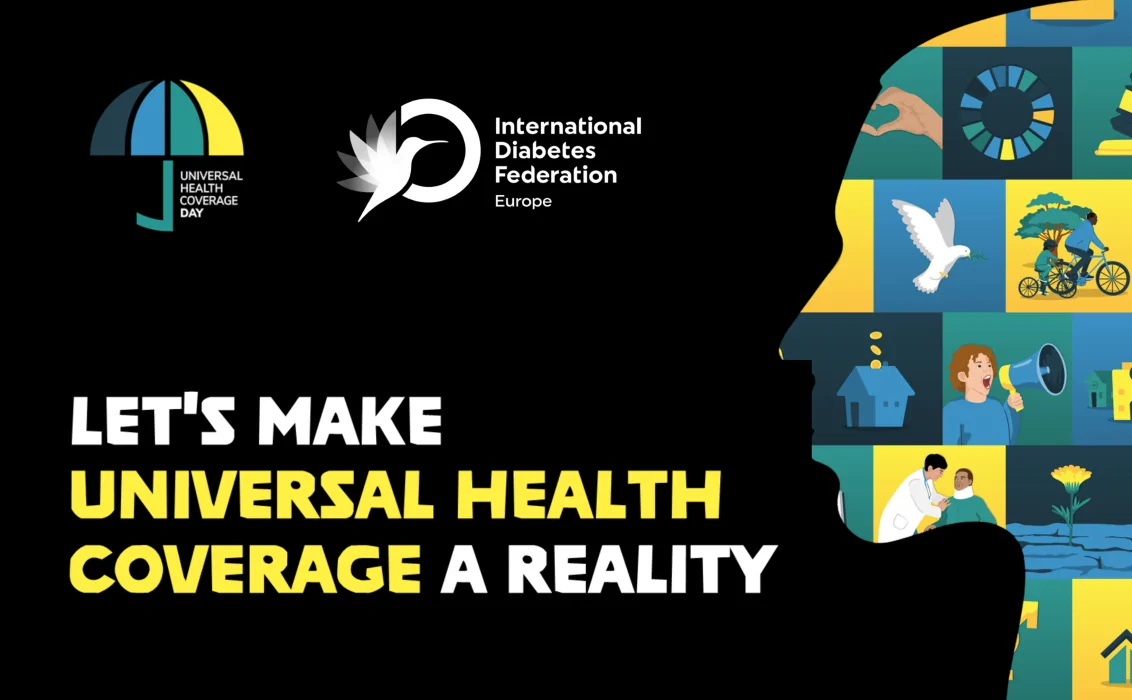my diabetes requires a daily routine
With 60 million people with diabetes and 32 million more at risk of developing it, Europe is facing a major health and financial pandemic. Today, it is estimated that 1 in 9 women over 25 have diabetes in the continent, and 1 in 7 births is affected by gestational diabetes, leading within 10 years after pregnancy to type 2 diabetes in 50% of all cases. In addition to their direct relations with diabetes, women are key agents in the adoption of healthy lifestyles which are crucial to prevent type 2 diabetes and also to maintain appropriate blood glucose levels and decrease the risk of debilitating complications. Furthermore, mothers will also often be the ones looking after the therapeutic and psychological aspects of a child with type 1 diabetes.
On the occasion of World Diabetes Day, IDF Europe decided to run a series of interviews of women having a direct relation with diabetes. Whether they have diabetes, have someone in their family living with the condition or they advocate at international level, they all have one thing in common: diabetes is at the centre of their daily life and they are all committed fight for stronger rights and lesser discrimination.
Today, we spoke to Lala Rabemananjara, who has been working for the International Diabetes Federation since 1999 and is Regional Executive at IDF Europe since 2002 about books, risk factors and love in the family.
Lala, you have been diagnosed with type 2 diabetes this year. What was your reaction?
You know diabetes is part of my life for a long time now, way before I joined IDF in 1999. I come from a family crippled with type 1 diabetes and I was diagnosed with impaired glucose tolerance in 1981 so I knew I was at high risk of developing type 2 diabetes.
For me, this is an important message: Type 2 diabetes is not only a lifestyle condition, the genetically predisposition plays an important role too. In fact, you are two to six times more likely to get type 2 diabetes if you have a parent, brother, sister, or child with diabetes. Often people thinks that it is only linked to the way you eat, your level of physical activity and that, in some ways you pay for your excess. You know, I have always been living with diabetes like a sword of Damocles since my childhood. The diet motto was “no fat, no sugar, no salt” and I continued it with my children. I do invite people a lot around the house and the food I serve has always been considered healthy by my various guests along the years
But still, despite my family history and the knowledge I have acquired on the condition since 1999, the diagnosis was a shock. It took me a few weeks to accept the fact that I was now going to live with a chronic condition for the rest of my life.
Following your diagnosis, did you receive a specific training on diabetes self-management?
Being part of the International Diabetes Federation, I fully understood the crucial role played by patient association to support people with diabetes. Therefore, one of the first thing I have done after the diagnosis was to register myself to the Association Belge du Diabète (Belgian Diabetes Association). Having worked with them on several occasions around World Diabetes Day, I knew that I could find there a lot of useful advice from professionals and other people with diabetes and also extremely well-made brochures and guidelines. I am a compulsive reader, I will have new reading interests
You have been diagnosed a few months ago, how are you today?
I have to admit so that since September the preparation of World Diabetes Day has taken a lot of my time and I did not take advantage as much of the association as I could. This is still something I need to learn and accept: my diabetes needs daily routine, check and attention and I must find the time to look after it daily.
You know, after the initial shocked, it took me a bit of time to accept the situation and adjust to diabetes. I am lucky to be surrounded by loving and caring children and friends who helped me go through the initial shock and support me when I feel a bit down. This is another important lesson and message for me: The entourage plays a crucial role in the daily management of the condition and the way you accept and live with diabetes.



